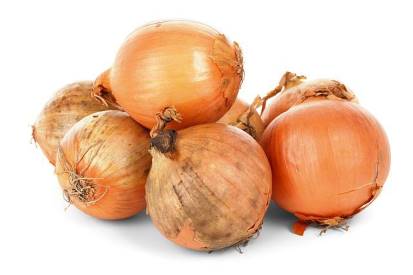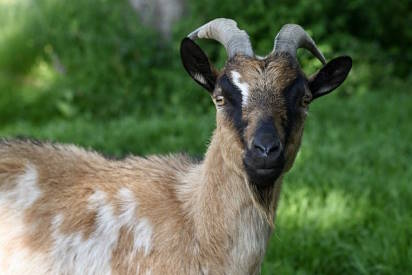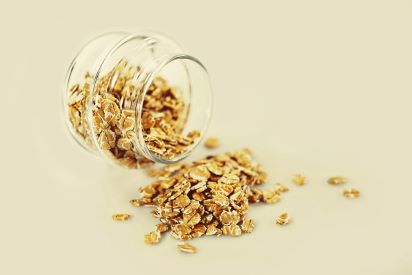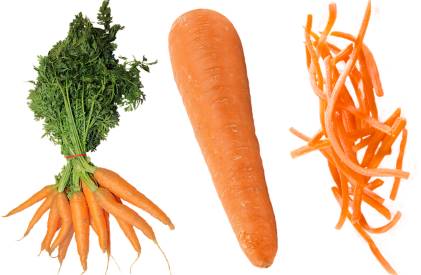Can goats eat onions? The simple answer is no; they cannot. I learned this the hard way when I first started as a goat owner. I was under the impression that goats could eat anything. I mean, they’re notorious for being walking garbage disposals, right? Well, as it turns out, that’s far from the truth. Goats are much more delicate creatures than they appear, and their dietary needs must be met with a thoughtful and informed approach.
I remember that fateful day I tossed a few onion peels into my goats’ feeding pen. They seemed intrigued, taking a sniff and even a few bites. It wasn’t long, however, before their usual energetic demeanor seemed to wane. A swift consultation with a vet confirmed my worst fears: onions were the culprit, causing an onset of hemolytic anemia, a condition I was previously oblivious to.
So here I am, writing this comprehensive guide on goats and their diets, particularly focusing on the implications of feeding onions to goats. My aim? To ensure no other goat owner repeats my mistake. Let’s dive deep into the world of goats, their dietary preferences, and the myths surrounding their eating habits.

Understanding the Basic Diet of Goats
To kick things off, let’s explore the world of goats and what they eat. When roaming free in their natural habitat, goats prefer the leaves of shrubs, bushes, trees, and some weedy grasses over traditional pasture grasses. This foraging habit makes them great for controlling unwanted vegetation in pastures.
What do goats naturally eat?
Goats are browsers, not grazers like cows and sheep. They enjoy a mix of grasses, leaves, twigs, vines, and shrubs. Some of their favorite meals include the leaves from bramble, willow, and mulberry trees.
Essential nutrients for a goat’s health
The key to a goat’s health and longevity is a balanced diet. Goats need a range of nutrients, including proteins, vitamins, and minerals such as calcium and phosphorous.
The importance of variety in a goat’s diet
Just like us, goats enjoy a bit of variety in their diet. While they love their share of leaves and twigs, they’ll also appreciate a mix of fruits, vegetables, and grains.
[GoatAffiliate]
Common Misconceptions about What Goats Can Eat
Now that we’ve covered the basics let’s move on to a tricky area: the myths around what goats eat. You might have heard that goats will eat anything, even tin cans! But this is far from the truth.
Debunking the myth that goats eat everything
Despite popular belief, goats are quite selective eaters, preferring to nibble on a little bit of everything but never overeating one thing. They are curious creatures and often use their mouths to explore objects in their environment, which is probably how the myth started.
Unusual items goats may attempt to eat but shouldn’t
Goats may attempt to chew on many things, including clothing, hair, and paper, but these items should not be part of their diet. They cannot digest these materials properly.
The dangers of feeding goats non-dietary items
Feeding goats items not meant for consumption can lead to blockages, nutritional deficiencies, and other health issues. Remember, just because a goat shows interest in an item doesn’t mean it’s safe or healthy for them to consume.
Can Goats Eat Onions: The Basic Question

With the backdrop of a goat’s basic diet and common misconceptions firmly in place, we’re poised to address the million-dollar question: can goats eat onions? This topic has sparked curiosity among many goat owners, particularly those with a garden bounty or an overflowing pantry.
Exploring the Reasons Behind Feeding Goats Onions
In an ideal world, people might ponder whether goats can eat onions due to surplus amounts. Be it a thriving onion yield in your backyard garden or a bulk purchase from your local grocery store, it’s understandable why one would consider sharing this bounty with their goats.
Furthermore, goats’ natural curiosity and seemingly indiscriminate dietary habits might lead owners to believe that onions are a suitable treat.
The Attraction of Onions for Goats
Like many other animals, goats are attracted to the strong, distinctive smell of onions. Their curiosity and tendency to explore their environment using their mouths might draw them towards these pungent bulbs. Observing goats nibbling or even relishing a bite of onion could mislead one into assuming that onions are a safe and acceptable addition to their diet.
The Human Perspective: Are Onions a Waste Solution?
From the human perspective, using surplus onions as a dietary supplement for goats might seem like a win-win. You get to reduce waste while your goats get an additional food source.
However, as we’ll explore in the next section, this assumption could inadvertently lead to significant health issues for your beloved goats. It’s crucial to remember that not everything in our pantry or fridge is safe for goat consumption.
Potential Risks of Feeding Onions to Goats

Let’s go deeper into why onions could spell trouble for goats. The idea that goats can eat anything is a common myth that might inadvertently risk your goat’s health. As we previously touched on, onions are particularly problematic. Let’s unpack why this everyday kitchen staple might cause severe complications for our hoofed friends.
The Nutritional Makeup of Onions and the Problems They Pose
Onions might seem innocuous enough to humans, but their nutritional profile contains a compound that goats can’t handle. This compound, known as N-propyl disulfide, can cause a condition known as hemolytic anemia in goats by damaging their red blood cells and reducing the oxygen supply throughout their body.
Essentially, this compound causes the red blood cells to rupture, a situation that can quickly become dire for goats.
Immediate Health Consequences for Goats Consuming Onions
After consuming onions, goats might start showing discomfort and illness almost immediately. They may appear weak and lethargic, with a faster-than-usual heart rate. One particularly noticeable symptom is the discoloration of their urine, often turning brown or red due to the presence of hemoglobin from ruptured red blood cells.
Such signs should alert the owner that something is amiss and that immediate action is required.
The Long-term Impact of Regular Onion Consumption
Even if the consumption of onions doesn’t immediately result in significant illness, consistent exposure to onions over a long period can result in chronic anemia. This can lead to a general state of malaise, weight loss, and a noticeable drop in milk production in dairy goats.
Moreover, a goat suffering from chronic anemia would have a weakened immune system, making it more susceptible to other diseases. To maintain a goat’s health, it’s best to avoid onions altogether. Prevention is indeed better than cure in this case.
Alternatives to Onions in a Goat’s Diet

Fear not; there are plenty of safe and tasty alternatives to onions in a goat’s diet. From fruits to grains, let’s explore these options.
Healthier vegetables and fruits to consider
Goats can safely enjoy a variety of fruits and vegetables like apples, carrots, pears, bananas, and berries. These can serve as occasional treats but should not replace their regular diet.
Safe treats for goats
Aside from fruits and veggies, goats can also enjoy grains, such as oats and corn, in moderation. Ensure these treats make up no more than 10% of their diet.
Commercial feeds and their benefits
Commercial goat feeds are formulated to provide all the essential nutrients goats need. They can be a great supplement to pasture browsing, especially for goats that don’t have access to varied forage.
Recognizing and Responding to Negative Dietary Reactions in Goats
Finally, knowing how to spot and respond to signs of dietary distress in goats is essential. Not all food items are goat-friendly, and reactions can be serious.
Signs your goat may have consumed a harmful substance
Changes in behavior, loss of appetite, changes in fecal output, and visible discomfort are signs that a goat may have consumed something harmful. Always keep an eye on your goat’s behavior and health status.
Initial steps to take if your goat appears unwell
If your goat shows signs of distress, remove any unfamiliar food sources, provide fresh water, and ensure the goat is comfortable and safe.
When to seek veterinary assistance for your goat
If your goat’s condition does not improve or worsens after removing the potential dietary culprit, seek veterinary care immediately. A quick response can be the difference between life and death in cases of severe dietary distress.
What Other Vegetables Can Goats Eat Apart from Onions?

In our journey through goats’ dietary needs and restrictions, we’ve already established that onions are a no-go. But what about other common vegetables you might have in your kitchen or garden? Let’s look at some familiar favorites and assess whether they can safely be on a goat’s menu.
Carrots
Yes, goats can safely eat carrots! These brightly colored veggies are a great source of vitamins and minerals. They also have a sweet taste that goats tend to enjoy. Just remember to chop them into manageable pieces to prevent choking and to feed them in moderation.
Read More: Can Goats Eat Carrots? 5 Fantastic Benefits
Potatoes
Here’s another common pantry item you might be curious about. Unfortunately, raw potatoes are not suitable for goats. They contain solanine, a substance that can be toxic to goats. Cooking destroys this toxin, but cooked potatoes should still be fed in moderation.
Read More: Can Goats Eat Potatoes? 5 Excellent Benefits
Sweet Potatoes
Sweet potatoes are a safe treat for goats and are typically well-liked due to their sweet taste. They are high in vitamins A and C, making them a nutritious snack. However, like all treats, sweet potatoes should only make up a small part of a goat’s diet.
Read More: Can Goats Eat Sweet Potatoes? Simple Answer & Feeding Tips
Turnips
Turnips are another green light for goats. Both the bulb and the greens of the turnip plant are safe for goats to consume. Turnip greens are packed with nutrients, making them an excellent supplement to a goat’s forage.
Read More: Can Goats Eat Turnips? 4 Great Health Benefits
Parsnips
Parsnips can be a nice treat for goats, but they should be given sparingly and preferably cooked. Raw parsnips are harder to digest and could lead to bloating. Always remember variety and moderation are crucial when feeding goats to ensure a balanced diet.
Read More: Can Goats Eat Parsnips? Discover The Surprising Answer
Frequently Asked Questions
Here are some of the most commonly asked questions about goats and onions. These should provide further clarity on this subject and give you the quick answers you need.
Can goats eat onion greens?
No, goats should not eat onion greens. Just like the bulbs, the green parts of onions contain the same compounds that can cause hemolytic anemia in goats.
What about cooked onions? Are they safe for goats?
While cooking onions might reduce the concentration of harmful compounds, they are still unsafe for goats. The risk of hemolytic anemia remains, so keeping onions, cooked or raw, away from goats is best.
Can goats eat garlic?
Garlic is a relative of the onion and contains similar compounds. However, the concentration is much lower, and garlic is often used in small amounts as a natural remedy for internal parasites in goats. It should still be fed in moderation and under the guidance of a vet or experienced goat owner.
If my goat accidentally eats an onion, what should I do?
If your goat accidentally eats an onion, monitor its behavior closely. If you notice any signs of distress or illness, such as changes in behavior, loss of appetite, or urine discoloration, contact a vet immediately.
How much onion is harmful to a goat?
The exact amount of onion that can harm a goat depends on the size and overall health. However, it’s best to err on the side of caution and not feed onions to goats at all to avoid any risk of hemolytic anemia.
Can goats eat other onion family members, like chives or leeks?
Like onions and garlic, other Allium family members, such as chives and leeks, also contain compounds that can be harmful to goats. As such, they should also be avoided.
Can goats eat onions – final thoughts
And there we have it – the final word on whether goats can eat onions. Who knew these seemingly harmless kitchen staples could wreak havoc on a goat’s system? The key takeaway from the world of goats and onions is that while goats may seem like the eat-anything type, they’re quite picky (and rightly so) regarding their diet.
So, the next time you find yourself with a surplus of onions and a group of goats gazing at you with those irresistible eyes, remember to resist the urge. Stick to the safe treats, like carrots and apples, and let those onions spice up your cooking instead. Not only will your goat thank you, but your culinary efforts might get an extra zing too!
Related Articles:
